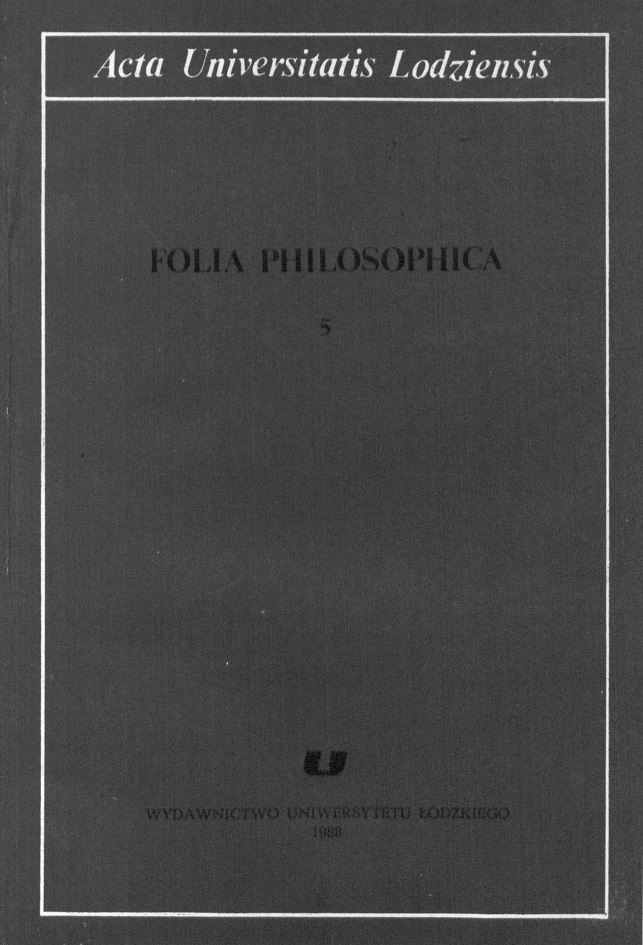Teoria jakości
DOI:
https://doi.org/10.18778/0208-6107.05.04Abstrakt
There could be accepted an ontological model, in which every thing is identified with properties possessed by it. This study is an attempt at matematization of the concept of property. Axiomatization was conducted so that this concept could be compatible, to a maximum degree, with institutional understanding. The main result is assertion 11 due to its methodological consequences. A collection of all objects discernible with regard to the finite number of independent properties was called "space of jumps" (formal definitions of "independence" and "space of jumps" are given in the article). "Space of jumps" may be treated as a certain model of "possible world". The assertions contained in the article give its characterization. By way of simplifying, the assertion 11 can be expressed as follows: accepting that a man s cognition takes place through a finite number of senses, which recognize basic and independent properties, it can be stated that a man cannot recognize objects possessing properties independent of properties recognizable through senses.
Pobrania
Opublikowane
Jak cytować
Numer
Dział
Licencja

Utwór dostępny jest na licencji Creative Commons Uznanie autorstwa – Użycie niekomercyjne – Bez utworów zależnych 4.0 Międzynarodowe.












